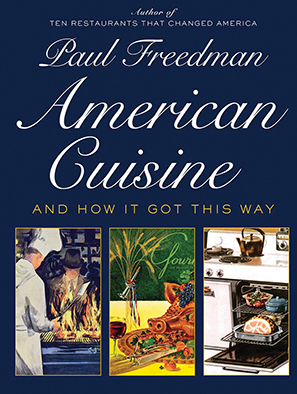 loading
loading
Reviews: July/August 2020 View full imageAmerican Cuisine: And How It Got This Way Paul Freedman’s American Cuisine: And How It Got This Way was published soon before the globe began retreating into itself, and is well timed now to help us understand what we’ll be in the midst of losing for good and what we should champion for enlightened rebuilding. Freedman switched to food history late in a distinguished career mostly dedicated to medieval times, and won wide attention for his Ten Restaurants That Changed America. In his new book he broadens his focus with somewhat mixed results. The through lines of, say, Russian Grand Duke Alexis to Mark Twain to Nero Wolfe to community cookbooks to poor African Americans vs. white Americans aren’t drawn in bright lines, so the first two thirds of the book, filled as they are with individually enlightening sections, don’t make the smooth reading they might. But then Freedman reaches his concluding section and the book takes wing as Freedman takes aim at the well-meaning pieties of the hippie generation. This is the era the author knows, and his gimlet eye and historian’s ability to describe the world views of beatniks and hippies make a coherent sociological study on its own.
The comment period has expired.
|
|